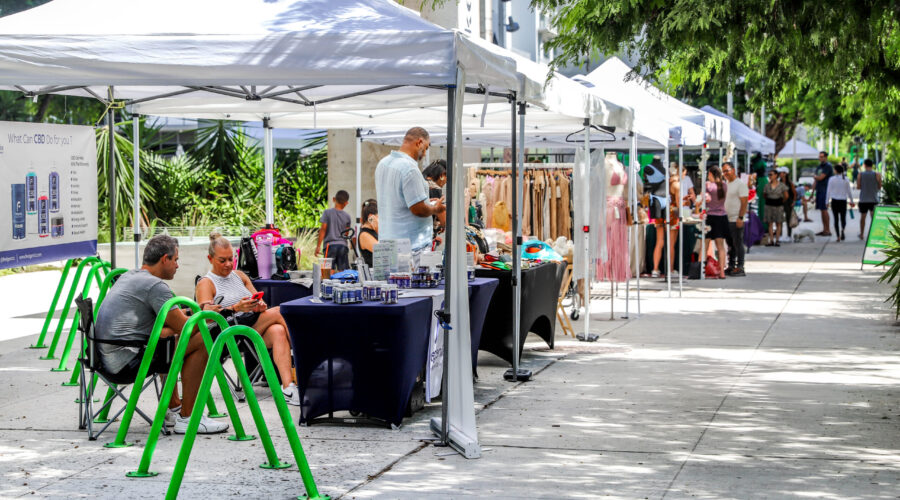Navigating the Legal and Regulatory Landscape for Vendors in Miami
Introduction: Complying with Miami’s Vendor Regulations
Before you set up your booth in Wynwood, Little Havana, or on South Beach, it’s essential to understand the maze of permits, licenses, and regulations that govern vending in Miami. Non-compliance can lead to fines, event denial, or even business closure. In this guide, we break down the key legal requirements for Miami vendors, share authoritative resources, and show how Unite Worldwide, Inc. supports you every step of the way.
Table of Contents
- Miami Business Tax Receipt & Zoning
- Florida Sales Tax Registration
- Food Vendor Permits & Health Inspections
- Cottage Food Registration
- Liability Insurance & Safety Compliance
- Vendor Agreements & Contracts
- How Unite Worldwide Simplifies Compliance
- Conclusion: Be Prepared, Be Compliant
1. Miami Business Tax Receipt & Zoning
All Miami vendors must obtain a Business Tax Receipt (formerly Occupational License) from Miami-Dade County:
- Apply online via Miami-Dade County’s portal
- Fees vary by business type and location (expect $30–$150 annually).
- Zoning clearance is required to confirm your vending location complies with the City of Miami’s zoning code .
Action Step: Before signing any lease or event contract, verify your spot is in a permitted zone to avoid last-minute shut-downs.
2. Florida Sales Tax Registration
In Florida, you must collect and remit sales tax on all tangible goods and certain services:
- Register for a Sales Tax Certificate (DR-1) through the Florida Department of Revenue .
- Display your certificate at every event; many market organizers require a copy during setup.
- File returns monthly or quarterly, even if no tax was collected.
Action Step: Set up automated reminders in your calendar to file returns—late fees can add up quickly.
3. Food Vendor Permits & Health Inspections
Selling food—packaged or prepared—introduces additional layers of regulation:
- Florida Department of Health (DOH):
- Mobile or temporary food operations require a permit, inspection, and compliance with Chapter 64E-11 of the Florida Administrative Code .
- Miami-Dade County Health Department:
- Some counties require a local “Temporary Food Service Event Permit.”
- Inspections often occur the morning of the event.
- Food Truck or Pushcart Licenses:
- If you use a vehicle, register with the DOH’s Mobile Food Unit program.
Action Step: Attend a free DOH food safety workshop to ensure your booth layout and practices pass inspection on Day One.
4. Cottage Food Registration
If you produce non-potentially hazardous foods (e.g., jams, baked goods), you may qualify under Florida’s Cottage Food Law:
- Register your operation with the Florida Department of Agriculture & Consumer Services (FDACS) .
- Labeling requirements include “Made in a cottage food operation that is not subject to Florida’s food safety regulations.”
- Sales are limited to direct-to-consumer channels (farmers’ markets, pop-ups) and capped at $250,000/year.
Action Step: Review FDACS’s sample labeling guide to ensure your products comply before your first event.
5. Liability Insurance & Safety Compliance
Protect your business—and the event hosts—by carrying General Liability Insurance:
- Minimum coverage often requested is $300,000 per occurrence.
- Add event organizers as “additional insured” on your policy.
- OSHA guidelines apply for any equipment (deep fryers, generators); review safety standards .
Action Step: Compare quotes from multiple insurers specializing in small-business or food-vendor policies to find the best rate.
6. Vendor Agreements & Contracts
Always read—and negotiate—your event contract:
- Cancellation policies: Look for refunds or roll-over credits for weather or unforeseen closures.
- Booth location & size: Ensure the location is specified in writing; corner booths often command higher foot traffic.
- Utilities & extras: Confirm who provides tables, chairs, power, and Wi-Fi.
- Exclusivity clauses: Beware of non-compete sections that restrict you from vending similar events.
Action Step: Keep a contract checklist template in your vendor resources to review key clauses before signing.
7. How Unite Worldwide Simplifies Compliance
At Unite Worldwide, Inc., we streamline your legal prep so you can focus on sales:
- 🔗 Compliance Checklist in our Vendor Resource Center
- 🔗 Permit Application Workshops hosted monthly in Miami—details at /miami-events
- 🔗 Template Contracts with vetted terms, available when you join our vendor community
- 🔗 Insurance Partnerships offering discounted coverage—access via /vendor-community
- 🔗 Expert Q&A Sessions on legal and safety topics in our blog
By leveraging these resources, you’ll maintain compliance effortlessly and avoid costly disruptions.
Conclusion: Be Prepared, Be Compliant
Vending in Miami offers incredible opportunities—but only for those who respect the rules. Securing the right licenses, permits, and insurance protects your business and builds trust with event organizers and customers alike. With Unite Worldwide, Inc. as your partner, you’ll have the tools, templates, and support network necessary to navigate Miami’s regulatory landscape and focus on what matters—growing your brand.
Ready to simplify compliance and get selling?
👉 Join us today: https://uniteworldwideinc.com/join-us
👉 Explore upcoming Miami workshops: https://uniteworldwideinc.com/miami-events
👉 Download legal templates: https://uniteworldwideinc.com/vendor-resources
👉 Connect with other vendors: https://uniteworldwideinc.com/vendor-community
👉 Read more tips on our blog: https://uniteworldwideinc.com/blog
With the right preparation, you’ll turn every market into a compliant, profitable success.



